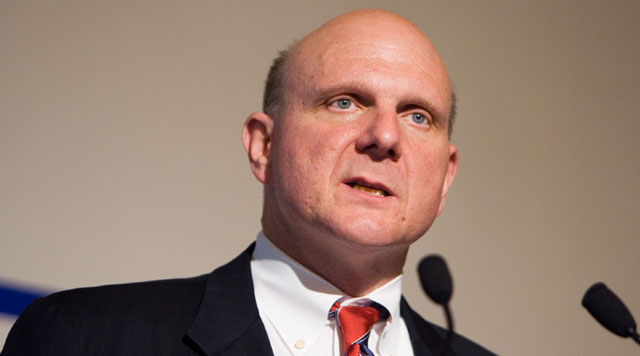
The battle for the tablet computer market became much more intense on Monday, with Microsoft breaking with its past approaches and announcing it was developing its own line of tablets, to be called Surface.
The company offered a preview of a pair of tablets that it intends manufacturing itself, a risky move given Microsoft’s checkered history in the hardware market.
Microsoft plans to offer two Surface tablets, one running its Metro-only version of Windows 8 for Arm-based processors, which it’s calling Windows RT. The second, more powerful tablet, will run an Intel Core i5 chip and offer the full Windows 8 Pro version of its upcoming operating system. (More details are available on Microsoft’s website.)
CEO Steve Ballmer says Surface “embodies the notion of hardware and software really pushing each other” and that it represents a “whole new family” of devices for Microsoft.
Apple’s iPad remains the dominant tablet computer worldwide, but devices powered by Google’s Android operating system and manufactured by companies such as Samsung and HTC have been gaining traction.
There was no doubt that Windows 8-powered tablets were looming, but many expected they would come exclusively from Microsoft’s hardware partners.
Dimitri Tserpes, chief technology officer at technology group Mustek, says Microsoft’s move is “interesting”. However, he’s concerned that the announcement didn’t include more information about pricing, release date and retail partnerships for the Surface devices.
The tablet market is a “volume game”, says Tserpes. “You want to see someone like Walmart saying it’ll take a million pieces, otherwise you won’t make a dent in Apple.”
Tserpes says it would’ve made more sense to have retailers on board first, with “stock to the ceilings” and to offer consumers information on availability. He says the question to ask is whether the Surface range is sufficiently appealing that consumers will “want one tomorrow”.
One of Apple’s strengths is that it converts hype into sales by announcing products along with release dates and, more often than not, the ability to preorder devices.
“I’m not sure the Surface tablets are revolutionary enough to convert the hype into sales when it is released,” Tserpes says. “It’s not enough for me, but then, neither was the new iPad. The iPad 2, on the other hand, was really exciting. It was a real progression from the first iPad.”
Microsoft’s biggest challenge is making its ecosystem exciting again, he says. The company has become somewhat “dry” and with its new products, and Windows 8, it will have to reinvigorate consumers about the brand.
Ryan Smit, head of digital consumer division at research and consulting firm BMI-TechKnowledge, says the move is sensible insofar as it “gets the ball rolling for Windows 8 tablets”. He says the Surface devices should be viewed like the Nexus devices from Google — a product that sets the standard for other manufacturers.
In this sense, he says the move may not annoy Microsoft’s hardware partners as much as some worry it will because companies like Samsung can manufacture devices to Microsoft’s specifications.
“Many expected Microsoft would partner with Nokia on the first Windows 8 tablet, but I suspect Nokia will be the next brand to bring out something in the same league,” Smit says.
He says it’s concerning that no release date for the new tablets has been announced because it gives Microsoft’s competitors more time to respond and consumers more time to buy competing devices in the interim.
Microsoft suggests that pricing of the Surface devices will be similar to that of competing devices and Smit says the company seems intent to compete on differentiating design elements and functionality rather than price.
He says Microsoft’s announcement will please those who remain “reluctant to move away from the Windows environment” and may appeal more to those looking for a complete replacement device for their personal laptop.
Although some have argued that Microsoft wants to target the enterprise market, where it’s strong, Smit says building a tablet means targeting both consumers and enterprise customers from the outset. He says consumers increasingly dictate what devices enterprises use, and that the best bet at infiltrating enterprises is by simply building the best device.
“From an enterprise point of view, the question will still be there as to how tablets fit into company systems and what exactly they’re used for, regardless of the brand,” says Smit. “There has to be a rationale for tablet deployment, whether it’s supplementing or replacing other devices. Companies aren’t going to buy tablets just for the sake of it.” — (c) 2012 NewsCentral Media
- Image: Masaru Kamikura/Flickr

